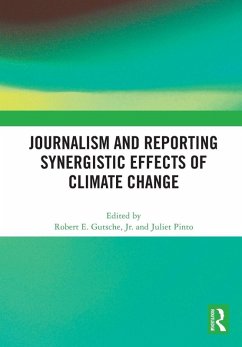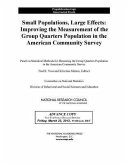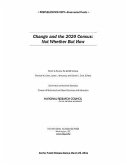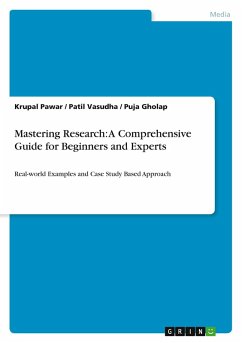Journalism and Reporting Synergistic Effects of Climate Change
Herausgeber: Gutsche Jr., Robert E.; Pinto, Juliet
Journalism and Reporting Synergistic Effects of Climate Change
Herausgeber: Gutsche Jr., Robert E.; Pinto, Juliet
- Broschiertes Buch
- Merkliste
- Auf die Merkliste
- Bewerten Bewerten
- Teilen
- Produkt teilen
- Produkterinnerung
- Produkterinnerung
This book examines how journalism functions among "synergistic effects" of climate change, such as compounded impact of severe weather, social and political responses to changing global warming, and impacts on our environments.
Andere Kunden interessierten sich auch für
![Small Populations, Large Effects Small Populations, Large Effects]() National Research CouncilSmall Populations, Large Effects41,99 €
National Research CouncilSmall Populations, Large Effects41,99 €![What Is to Be Done What Is to Be Done]() Barry JonesWhat Is to Be Done15,99 €
Barry JonesWhat Is to Be Done15,99 €![Burning Crosses and Activist Journalism Burning Crosses and Activist Journalism]() Jan WhittBurning Crosses and Activist Journalism47,99 €
Jan WhittBurning Crosses and Activist Journalism47,99 €![Change and the 2020 Census Change and the 2020 Census]() National Research CouncilChange and the 2020 Census20,99 €
National Research CouncilChange and the 2020 Census20,99 €![History and Communications History and Communications]() Graeme PattersonHistory and Communications38,99 €
Graeme PattersonHistory and Communications38,99 €![Mastering Research: A Comprehensive Guide for Beginners and Experts Mastering Research: A Comprehensive Guide for Beginners and Experts]() Krupal PawarMastering Research: A Comprehensive Guide for Beginners and Experts47,95 €
Krupal PawarMastering Research: A Comprehensive Guide for Beginners and Experts47,95 €![Cognitive Hack and Cognitive Risk Set Cognitive Hack and Cognitive Risk Set]() James BoneCognitive Hack and Cognitive Risk Set78,99 €
James BoneCognitive Hack and Cognitive Risk Set78,99 €-
-
-
This book examines how journalism functions among "synergistic effects" of climate change, such as compounded impact of severe weather, social and political responses to changing global warming, and impacts on our environments.
Produktdetails
- Produktdetails
- Verlag: Routledge
- Seitenzahl: 344
- Erscheinungstermin: 27. Oktober 2025
- Englisch
- Abmessung: 244mm x 170mm x 19mm
- Gewicht: 595g
- ISBN-13: 9781032627519
- ISBN-10: 1032627514
- Artikelnr.: 75425270
- Herstellerkennzeichnung
- Libri GmbH
- Europaallee 1
- 36244 Bad Hersfeld
- gpsr@libri.de
- Verlag: Routledge
- Seitenzahl: 344
- Erscheinungstermin: 27. Oktober 2025
- Englisch
- Abmessung: 244mm x 170mm x 19mm
- Gewicht: 595g
- ISBN-13: 9781032627519
- ISBN-10: 1032627514
- Artikelnr.: 75425270
- Herstellerkennzeichnung
- Libri GmbH
- Europaallee 1
- 36244 Bad Hersfeld
- gpsr@libri.de
Robert E. Gutsche, Jr. is Associate Professor in the School of Communication and Multimedia Studies at Florida Atlantic University, USA, whose research focuses on issues of power and ideology in digital journalism. He is Associate Editor of Journalism Practice and founded and hosts its podcast, "The J Word." Juliet Pinto is Associate Professor in the Bellisario College of Communications at Penn State, USA. Her research explores news production of environmental issues in a comparative perspective. She is the co-editor of the Journal of Environmental Media and the co-editor of the forthcoming volume, Communicating Resiliency and Efficacy in a Digital Age: Mediated Communities.
Introduction-Covering Synergistic Effects of Climate Change: Global
Challenges for Journalism 1. New Reasons for Forced Displacement: A
Multimodal Discourse Analysis of the Construction of Refugee Identity 2.
Precariously Employed Climate Journalists the Challenges of Freelance
Climate Journalists in South Asia 3. Calm During the Storm:
Micro-Assemblage, Meteorology and Community Building on a Local Independent
Weather Blog During Hurricane Harvey 4. Blowing in the Wind-Norwegian Wind
Power Photographs in Transition 5. Heroes of the Day After Tomorrow: "The
Oil Worker" in Norwegian Climate Coverage 2017-2021 6. The Potential of
Interactivity and Gamification Within Immersive Journalism & Interactive
Documentary (I-Docs) to Explore Climate Change Literacy and Inoculate
Against Misinformation 7. Metajournalistic Discourse as a Stabilizer within
the Journalistic Field: Journalistic Practice in the Covid-19 Pandemic 8.
How Constructive News Outlets Reported the Synergistic Effects of Climate
Change and Covid-19 Through Metaphors 9. Understanding Influences,
Misinformation, and Fact-Checking Concerning Climate-Change Journalism in
Pakistan 10. Covering the Wildfire of Mati in Greece: Undermining the
Systemic Human Impact on the Environment 11. Are Journalists Reporting on
the Highest-Impact Climate Solutions? Findings from a Survey of
Environmental Journalists 12. Reporting on the 2019 European Heatwaves and
Climate Change: Journalists' Attitudes, Motivations and Role Perceptions
13. Journalists and Engagement on Twitter and Climate Change: Tweet
Authors, Formats, and Content During COP25 14. Telling Every Story:
Characteristics of Systematic Reporting 15. What is 'Good' Climate
Journalism? Public Perceptions of Climate Journalism in Denmark 16. Setting
an Agenda to Tackle Environmental Issues with Data and Collaboration
Challenges for Journalism 1. New Reasons for Forced Displacement: A
Multimodal Discourse Analysis of the Construction of Refugee Identity 2.
Precariously Employed Climate Journalists the Challenges of Freelance
Climate Journalists in South Asia 3. Calm During the Storm:
Micro-Assemblage, Meteorology and Community Building on a Local Independent
Weather Blog During Hurricane Harvey 4. Blowing in the Wind-Norwegian Wind
Power Photographs in Transition 5. Heroes of the Day After Tomorrow: "The
Oil Worker" in Norwegian Climate Coverage 2017-2021 6. The Potential of
Interactivity and Gamification Within Immersive Journalism & Interactive
Documentary (I-Docs) to Explore Climate Change Literacy and Inoculate
Against Misinformation 7. Metajournalistic Discourse as a Stabilizer within
the Journalistic Field: Journalistic Practice in the Covid-19 Pandemic 8.
How Constructive News Outlets Reported the Synergistic Effects of Climate
Change and Covid-19 Through Metaphors 9. Understanding Influences,
Misinformation, and Fact-Checking Concerning Climate-Change Journalism in
Pakistan 10. Covering the Wildfire of Mati in Greece: Undermining the
Systemic Human Impact on the Environment 11. Are Journalists Reporting on
the Highest-Impact Climate Solutions? Findings from a Survey of
Environmental Journalists 12. Reporting on the 2019 European Heatwaves and
Climate Change: Journalists' Attitudes, Motivations and Role Perceptions
13. Journalists and Engagement on Twitter and Climate Change: Tweet
Authors, Formats, and Content During COP25 14. Telling Every Story:
Characteristics of Systematic Reporting 15. What is 'Good' Climate
Journalism? Public Perceptions of Climate Journalism in Denmark 16. Setting
an Agenda to Tackle Environmental Issues with Data and Collaboration
Introduction-Covering Synergistic Effects of Climate Change: Global
Challenges for Journalism 1. New Reasons for Forced Displacement: A
Multimodal Discourse Analysis of the Construction of Refugee Identity 2.
Precariously Employed Climate Journalists the Challenges of Freelance
Climate Journalists in South Asia 3. Calm During the Storm:
Micro-Assemblage, Meteorology and Community Building on a Local Independent
Weather Blog During Hurricane Harvey 4. Blowing in the Wind-Norwegian Wind
Power Photographs in Transition 5. Heroes of the Day After Tomorrow: "The
Oil Worker" in Norwegian Climate Coverage 2017-2021 6. The Potential of
Interactivity and Gamification Within Immersive Journalism & Interactive
Documentary (I-Docs) to Explore Climate Change Literacy and Inoculate
Against Misinformation 7. Metajournalistic Discourse as a Stabilizer within
the Journalistic Field: Journalistic Practice in the Covid-19 Pandemic 8.
How Constructive News Outlets Reported the Synergistic Effects of Climate
Change and Covid-19 Through Metaphors 9. Understanding Influences,
Misinformation, and Fact-Checking Concerning Climate-Change Journalism in
Pakistan 10. Covering the Wildfire of Mati in Greece: Undermining the
Systemic Human Impact on the Environment 11. Are Journalists Reporting on
the Highest-Impact Climate Solutions? Findings from a Survey of
Environmental Journalists 12. Reporting on the 2019 European Heatwaves and
Climate Change: Journalists' Attitudes, Motivations and Role Perceptions
13. Journalists and Engagement on Twitter and Climate Change: Tweet
Authors, Formats, and Content During COP25 14. Telling Every Story:
Characteristics of Systematic Reporting 15. What is 'Good' Climate
Journalism? Public Perceptions of Climate Journalism in Denmark 16. Setting
an Agenda to Tackle Environmental Issues with Data and Collaboration
Challenges for Journalism 1. New Reasons for Forced Displacement: A
Multimodal Discourse Analysis of the Construction of Refugee Identity 2.
Precariously Employed Climate Journalists the Challenges of Freelance
Climate Journalists in South Asia 3. Calm During the Storm:
Micro-Assemblage, Meteorology and Community Building on a Local Independent
Weather Blog During Hurricane Harvey 4. Blowing in the Wind-Norwegian Wind
Power Photographs in Transition 5. Heroes of the Day After Tomorrow: "The
Oil Worker" in Norwegian Climate Coverage 2017-2021 6. The Potential of
Interactivity and Gamification Within Immersive Journalism & Interactive
Documentary (I-Docs) to Explore Climate Change Literacy and Inoculate
Against Misinformation 7. Metajournalistic Discourse as a Stabilizer within
the Journalistic Field: Journalistic Practice in the Covid-19 Pandemic 8.
How Constructive News Outlets Reported the Synergistic Effects of Climate
Change and Covid-19 Through Metaphors 9. Understanding Influences,
Misinformation, and Fact-Checking Concerning Climate-Change Journalism in
Pakistan 10. Covering the Wildfire of Mati in Greece: Undermining the
Systemic Human Impact on the Environment 11. Are Journalists Reporting on
the Highest-Impact Climate Solutions? Findings from a Survey of
Environmental Journalists 12. Reporting on the 2019 European Heatwaves and
Climate Change: Journalists' Attitudes, Motivations and Role Perceptions
13. Journalists and Engagement on Twitter and Climate Change: Tweet
Authors, Formats, and Content During COP25 14. Telling Every Story:
Characteristics of Systematic Reporting 15. What is 'Good' Climate
Journalism? Public Perceptions of Climate Journalism in Denmark 16. Setting
an Agenda to Tackle Environmental Issues with Data and Collaboration








